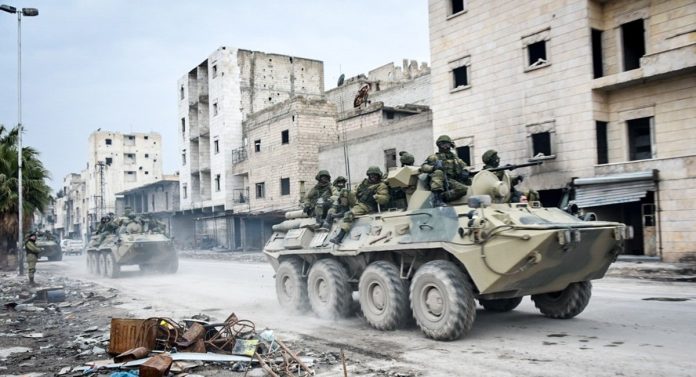In 2015, when Russia, at the request of President of Syria Bashar Assad, joined Syrian conflict, Vladimir Putin pursued several strategic goals. He sought to help Russia out of international isolation that came after the annexation of Crimea in 2014, to restore the influence in the Middle East, where its country lost its position after the collapse of the USSR, and to demonstrate the world that Russia was able to support its allies and guarantee security.
However, after almost ten years of involvement in Syrian conflict, the situation looks completely different. The Russian intervention, which was to become a demonstration of strength and guarantee of stability for the Kremlin allies, did not produce the desired results. The loss of Assad regime, as well as the gradual weakening of the Russian military presence in Syria, show that Putin failed to fulfill the promised role of the defender and stabilizer in the Middle East.
Putin presented Russian interference in Syria as a fight against terrorism, emphasizing the threat of IDIL and other Islamist groups for global security. However, the real motifs of Moscow were more complex. Russia sought to confirm its status of the Great World State, capable of controlling regional conflicts and have an impact on geopolitical processes. With the help of military intervention, Russia also sought to regain the role of the defender of Christians in the Middle East, especially given the West, according to the Kremlin, "abandoned" this mission. But the situation in Syria was not planned. Although Russia was able to restore Assad's control over the majority of the territory, its military bases in the Middle East were threatened. In addition, Russia has not been able to live up to protect Syrian Christians. Under the pressure of the Islamists, supported by the Western powers, Syria again became the arena for regional disputes, and Moscow was unable to ensure the economic restoration of the country. Syria's problems, such as unstable economy and social upheaval, remained without effective solution, even with the support of Russia. Since the beginning of its intervention, Russia has represented itself as a security guarantor for weaker countries that had no close ties with the West. Syria successes allowed the Kremlin to act as a stability supplier for a number of African and Middle Eastern countries. With the help of their military bases, military instructors and mercenaries (for example, Wagner PEC), Russia helped countries such as the Central African Republic, Chad, Libya and Mali, to fight armed groups. However, the fall of Assad and the possibility of losing military bases in Syria are questioned by Russia's ability to be an effective safety exporter. The war in Ukraine, which has become the main priority of the Kremlin, is increasingly distracting from other strategic goals, and this has serious consequences for Russia's image as a reliable ally. Failure in Syria and the change in Russia's priorities is a direct consequence of Russian aggression in Ukraine. After 2022, when Russia launched a full -scale invasion of Ukraine, all other Putin's foreign ambitions went to the background. Russia has actually abandoned the role of the stabilizer in the Middle East, trying to focus resources in the war in Ukraine.
It also means that countries that have hoped to support Russia in ensuring their safety can begin to doubt the Kremlin's capabilities. It should be noted that Putin tried to submit Assad's loss as a certain victory, claiming that Russia stopped terrorist threats in Syria. However, it looks like an attempt to explain the defeat when reality proves that Russia has not been able to achieve its strategic goals. Syria has now become a metaphor for Russia's broader problem in international politics. The Kremlin, which at one time tried to portray itself as a new warranty mechanism for the Allies, is now faced with the fact that its ability to guarantee stability has become questionable. The fall of Assad only emphasizes that Russia, focused on the war in Ukraine, can no longer be a reliable stabilizer in other regions of the world.
Russian investments in Syria have not led to long -term economic development, and military assistance could not provide a stable peace. The system that promised to be reliable did not withstand the tests of reality. The fall of Assad in Syria is not just a collapse for the regime itself, but also a serious blow to Russia's ambitions to become a guarantee of stability in other countries.


